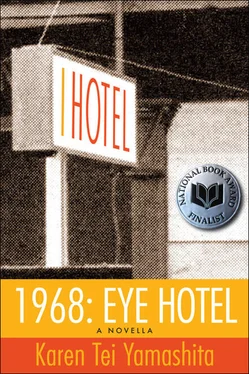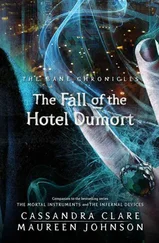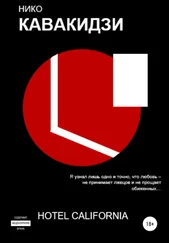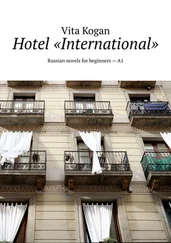We continued to stare at the photo, trying to see the woman behind the goggles while pretending to scrutinize the car. What does a baroness look like?
“Nica was a bit older than me.” Chen thought for a moment. “Our marriage was happily arranged. She and I were excellent company. I cared for her when she became ill.”
He popped a bottle of champagne and nudged a glass at the young man. We looked out at the island where we had passed the day, and at the city’s hills. They toasted the sunset over the bay, slipping behind the Golden Gate.
The young man knew as he had craved his knowing in sepia tones on the ferry that morning. And Chen had also known the ephemeral moment that would constitute another life in a long wish for a long life. Once again they leaned out over a railing, their shoulders touching, the soft youth of a man newly twenty-one and the toned muscularity of a scholar of many lives.
Many years later we would sing the poem penned in the morning after:
Speaking of love and the revolution across the bay.
Speaking of ferrying south, that endless intent.
The ocean is wider than the sky, your grace taller than Tamalpais.
How could spring rain turn rocky cliff into soft soil?
How could sprouts grow taller than this outlook?
Wind chimes have replaced the sound of water on the roof.
I’ve been too busy missing you to be angry.
I’ve been too busy missing you to be angry.
For those born after the liberation, it is necessary to attend speak-bitterness sessions and to listen to the old folks talk about the old days, what they suffered and how they were abused by the old system. The new generation does not know this past; they only know about the days after liberation. Chairman Mao says that the world and China’s future belong to the youth, but because of their inexperience they cannot comprehend the hardships of the past and the struggle required to establish a happy socialist society. This must also be true of overseas Chinese people. Although they may confront hardships, their struggles have not yet led to socialism. Lately, many overseas Chinese citizens return to visit the motherland. They come in the spirit of pride and learning and are welcomed as compatriots and comrades. They are quickly infected with the energy and spirit of the people, and they acknowledge their industry and progress.
This return coincides with the visit last year of the American President Nixon to the People’s Republic of China. This is a momentous event that signals a new era of exchange and equal standing between great nations. The People’s Republic of China in a short time accomplishes the unification of the country. This is a long and arduous road for which millions of Chinese sacrifice their lives. Since May 4, 1919 the Chinese people fight bravely for three decades to expel the Japanese imperialists and defeat reactionary nationalists. This struggle is won through the leadership of the Chinese Communist Party and the revolutionary army it commands. Thirty years later on October 1, 1949, Chairman Mao stands on the rostrum of Tiananmen Square and announces a new era for the Chinese people. This is a great victory for the worker and peasant masses, who together bring about this great proletarian socialist revolution. Now in fewer than twenty-five years since the liberation, the Chinese people demonstrate their ability to change the social, political, and physical landscape of China by removing, one by one, the three big mountains of imperialism, feudalism, and bureaucrat-capitalism.
Chen Wen-guang and Lee Yat Min are such overseas Chinese returnees; they are traveling in China to experience for themselves the great changes that have occurred in their absence. Chen is invited to continue his study of Chinese literature since the liberation. For six months, he is actively collecting newly published books and interviewing writers. Lee, who is Chen’s student, has come for a shorter period of one month with a group of Chinese American journalists. Since Lee is fluent in several dialects of the Chinese language, he is the interpreter for his group. Not all returning overseas Chinese are so fluent in the language or so knowledgeable about China. Understandably their memories of the China they left behind mix with new realities. Such a leap in time may be a shock. For Chen it is more than twenty years. For Lee it is only a decade, but for the young man as for the older, this leap in time represents almost half of their lifetimes. To accompany their new understanding and many sensations is to learn about the past and to participate in their rebirth.
Lee and his group of Chinese American journalists arrive from Hong Kong, stepping into the People’s Republic at Shum Chun. The transition—crossing from a decadent colonial to a prosperous socialist society—cannot be more apparent. On the one side, a city of grimy poverty, crime, and prostitution, rich tourists ignoring children begging under the signs of Coca-Cola and Lucky Strikes. On the other, verdant hills laced with communal rice paddies, happy children playing under newly planted trees, red flags, and posters with encouraging slogans to the people.
Members of the Chinese Communist Party, specially trained as guides for foreign guests, meet Lee’s group as they board the train. Everything is carefully planned; journalists like Lee will report back to their people to tell the truth about China’s revolution. The guides welcome the overseas Chinese back to China, although most of them were born abroad and have never been to China. This is the feeling of brotherhood and solidarity extended to Chinese people all over the world. The excitement and pleasure of the group is evident as they choose seats near the windows to view the landscape. Lee interprets: “This train was built entirely in China by the Chinese people.”
His is a group of ten, almost all of them young. They represent student newspapers and underground papers for mass organizations. One older comrade writes for a Chinese-language newspaper considered to be left-leaning. He and Lee interpret for the group, although only Lee can also speak Mandarin and, as it turns out, the dialect of Shanghai. One sister-comrade gets to work quickly and initiates a conversation with one of the train workers. Lee is called to sit between them.
The train worker says, “I graduated high school four years ago and have been working on this train since that time.”
She asks, “Did you wish to go to college?”
“I applied, but it’s my country’s wish that I work here.”
“Would you rather go to college?”
“If my work benefits the country, then I do it wholeheartedly.”
“Did you study America in school?”
“Yes, we studied the history and politics of the United States. I learned that there is a wide gap between the rich and the working people that is not right.”
“If you were an American citizen living in those conditions, what would you do?”
“Start a revolution.”
“That is not so easy.”
“I know, but we did it here. So it is possible to move such mountains.”
Lee himself asks no questions. He is trying to listen to more than the answers. He is grateful for the direct questions that he himself feels uncomfortable asking, but he tries to put himself in the train worker’s place.
The sister speaks to Lee excitedly as she copies everything down into her notebook. “Well, we’re not in Chinatown anymore,” she muses. “I know this sounds obvious, but you know when they talk about the Chinese being one-fourth of the world’s population? Well, I never really thought about it until now. That’s what we are a part of. I never really felt that way until now.”
Читать дальше












